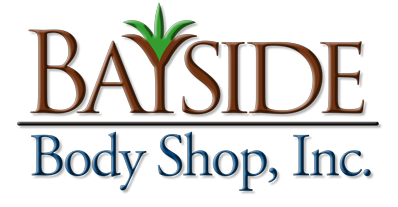The Lincoln Motor Company does not approve the procedure of clearcoat blending or using clearcoat blending in any warranty or collision repair. They strongly suggest that blending clearcoat might lead to future issues down the road with peeling and product breakdown. Furthermore, Lincoln never allows for partial clearcoat blending on warranty paint repairs and does...
Aftermarket Replacement Windshields May Cause Honda Sensing Systems to Work Abnormally
This update applies strictly to all models with Honda Sensing systems Are you replacing a windshield on a vehicle equipped with any of these Honda Sensing systems? • Adaptive Cruise Control (ACC) • Collision Mitigation Braking System (CMBS) • Forward Collision Warning (FCW) • Lane Departure Warning (LDW) • Lane...
Pre- And Post- Scanning Of Collision Vehicles Subaru Of America, Inc.
With each new model, Subaru makes advancements in technology that assist in the operation and safety of our vehicles. These advancements incorporate different sensor, cameras, control units, as well as other components, to assist with the functionality of the vehicle. They are a critical part of vehicle operation and the safety features in each Subaru...
Clear Coat Blending is not Recommended by Hyundai Motor America
Clear Coat blending is a procedure sometimes used on spot repairs performed within the borders of a body panel. After base coats are applied to the spot repair, a clear coat is applied only to the spot repair area. This is followed by spraying blending solvent onto the perimeter of...
Use Only Honda-Supplied Parts on Every Repair
American Honda recognizes the importance of recycling, however the use of salvage/recycled parts to repair collision-damaged vehicles raises serious concerns about quality, suitability, safety and warranty. Many factors can influence the quality and/or suitability of salvage/recycled parts including but not limited to, unknown prior damage to the donor vehicle, exposure...
Nissan Does Not Want Recycled Parts in All Collision Repairs
Some body shops suggest that collision repairers should not use salvage/recycled parts while others may prefer them. In other cases, carmakers discourage the use of them. In this scenario, Nissan North America recognizes the importance of recycling. But the use of salvage/recycled parts to repair collision-damaged vehicles raises serious concerns...
OE-Recommended Steel and Aluminum Wheel Repair Standards on All Nissan Vehicles
Nissan North America does not approve of any repairs made to any of its wheels, which includes the use of any repaired steel or aluminum wheel that involves welding, bending, hammering, straightening, re-machining, reforming, or adding new material, as this can compromise the structural integrity of the wheel and safety...
Volvo Does Not Approve of Aftermarket Parts Utilization
Volvo Car USA does not approve of the use of aftermarket replacement parts. All the parts in a Volvo vehicle are responsible for specific functions. Genuine Volvo parts have been optimized for safety, structural integrity and fit. Aftermarket parts are not subjected to the same testing and requirements and may...
Volvo does not endorse reconditioning Volvo wheels
Volvo Car USA does not approve the use of reconditioned Volvo wheels or any type of process that attempts to restore damaged wheels on Volvo vehicles. Doing so may result in loss of vehicle control and injury or death to passengers. When it comes to a damaged wheel, replacement is...
Volvo does not endorse reconditioning Volvo wheels
Volvo Car USA does not approve the use of reconditioned Volvo wheels or any type of process that attempts to restore damaged wheels on Volvo vehicles. Doing so may result in loss of vehicle control and injury or death to passengers. When it comes to a damaged wheel, replacement is...
